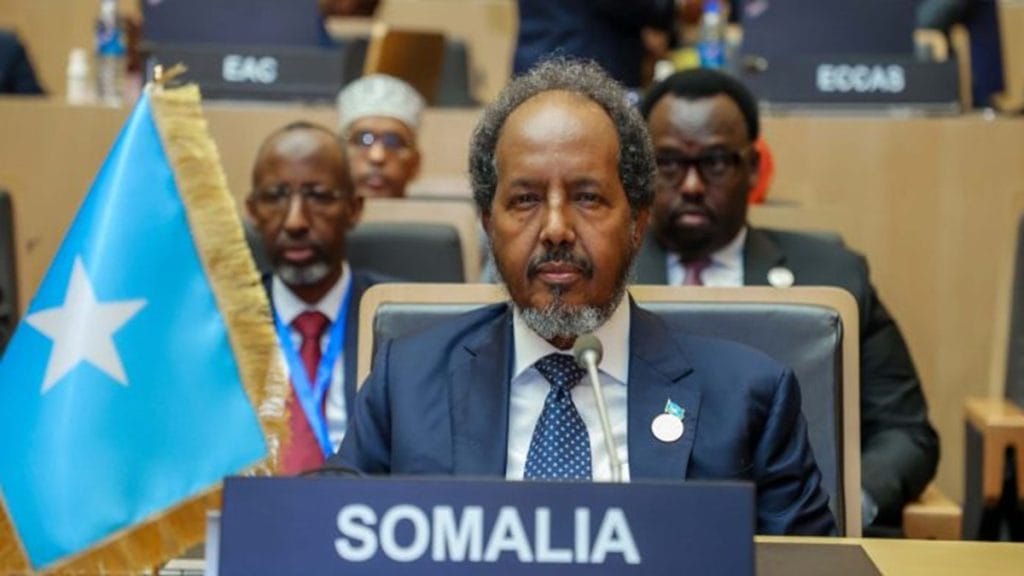Somalia’s President Hassan Sheikh Mohamud has arrived in Uganda’s capital to participate in a high-level summit of Troop Contributing Countries (TCCs) to the newly launched African Union Support and Stabilization Mission in Somalia (AUSSOM).
Hosted in Kampala, the meeting gathers heads of state and senior officials from nations that have deployed peacekeeping forces to Somalia over the past decade. The summit is expected to evaluate the early stages of AUSSOM’s rollout, address logistical and operational hurdles, and strengthen regional collaboration in the fight against al-Shabaab.
In a statement issued by Villa Somalia, President Mohamud reaffirmed Somalia’s commitment to “African-led solutions to African challenges” and praised the contribution of African troops to Somalia’s long-standing stabilization efforts.
Somalia has been the focus of several African Union peace missions since 2007, beginning with AMISOM, followed by ATMIS in 2022. These missions were primarily aimed at dislodging al-Shabaab militants and supporting national institutions. AUSSOM, the successor to ATMIS, is envisioned as a leaner, more strategic mission, with a strong focus on transitioning security responsibilities to Somali forces.
Despite steady gains, Somalia’s security forces continue to face major challenges, particularly in central and southern regions such as Galgaduud, Hiraan, and Middle Shabelle, where al-Shabaab remains active. The recent handover of security duties has prompted concerns about the Somali National Army’s preparedness to independently counter insurgent threats.
The Kampala summit comes at a time of shifting alliances and heightened regional tensions. Egypt has recently thrown its support behind AUSSOM, a move seen in the context of strained relations between Somalia and Ethiopia over Addis Ababa’s maritime deal with Somaliland—an agreement Mogadishu considers a violation of its sovereignty.
A major concern facing AUSSOM is its financial framework. Unlike previous AU-led missions, AUSSOM was launched without a guaranteed funding mechanism. Both the African Union and United Nations are still in talks to secure sustainable financing, while Somali officials stress that continued international backing will be vital to the mission’s effectiveness and long-term stability.
As regional and global actors weigh in, the summit in Kampala may prove pivotal in shaping the future of Somalia’s security landscape and the role of African-led peacekeeping in the Horn of Africa.


